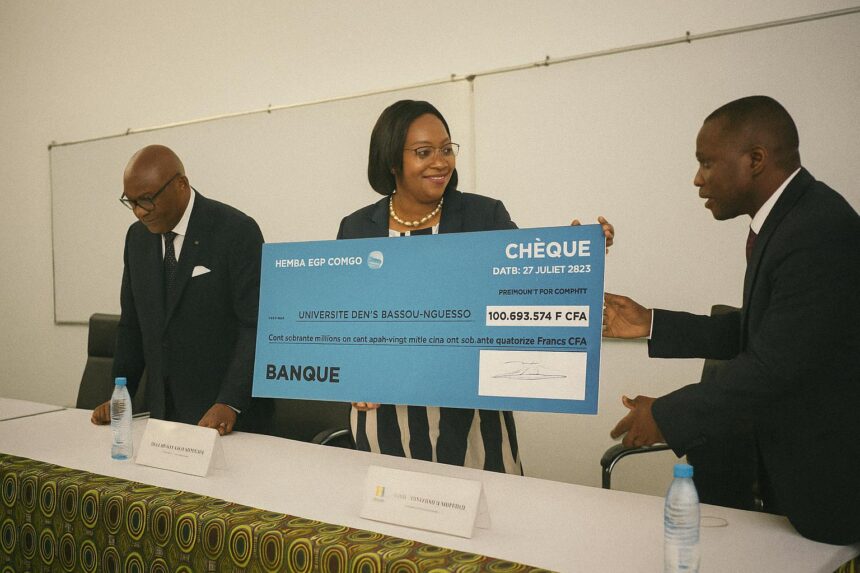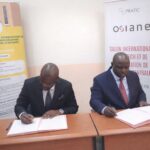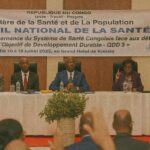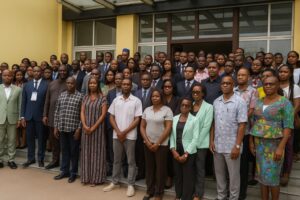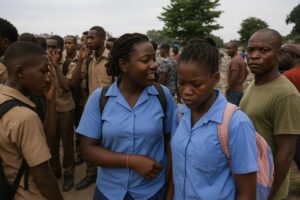A Signature That Echoes Beyond Kintele
The swirl of ceremonial ink that sealed Hemla E&P Congo’s cheque for 160 683 674 CFA in Kintele might appear modest against the billion-dollar scale of the national hydrocarbons sector, yet its resonance inside the marble atrium of Denis Sassou Nguesso University (UDSN) was unmistakable. The public institution, founded in 2021 to relieve pressure on the historic Marien Ngouabi University, has wrestled with the classic dilemmas of expansion: surging enrolments and under-equipped laboratories. Rector Ange Antoine Abena therefore greeted the grant as “a turning point in the pedagogy of applied sciences,” affirming that digital microscopes and tensile-test machines would shift courses from theoretical monologue to empirical discovery.
Corporate Diplomacy in the Age of Local Content
The donation’s legal DNA can be traced to the 2016 Hydrocarbons Code and its implementing decree of 2021, which oblige operators to reserve a defined share of revenue for human-capital development. Hemla E&P Congo, which entered the offshore Marine XII permit as a junior partner in 2018, has steadily built a reputation for early compliance. Administrator Abime Laurier framed the cheque as a ‘contract of confidence’ between industry and society, echoing the broader government narrative that energy extraction should fertilise, rather than exhaust, national capabilities (African Energy Chamber 2024 Outlook).
Fiscal Context: Petrodollars Under Measured Pressure
Brent prices hovering above 80 USD this year have replenished state coffers, yet Brazzaville remains cautious after the 2014-2016 downturn, when public-investment projects saw abrupt freezes. By channelling a slice of corporate surplus directly into laboratories rather than the Treasury, the Hemla model mitigates budgetary lag and satisfies IMF advice that public–private synergies can accelerate SDG-aligned spending without inflating sovereign debt (IMF Country Report No. 23/182).
Pedagogical Ripples and Regional Attraction
UDSN’s Faculty of Applied Sciences has already scheduled a pilot module in digital histology for the next academic year, while the Institute of Geographic and Environmental Sciences plans to certify soil-mechanics technicians by 2026. Such upgrades strengthen Congo-Brazzaville’s candidacy as a regional training hub, a goal articulated in the Central African Economic and Monetary Community’s 2023 roadmap that foregrounds mobility of skilled labour. The ministry anticipates a 12 percent rise in foreign enrolment, notably from Gabon and the Central African Republic, once the equipment becomes operational.
Government Stewardship and Policy Continuity
Minister of Higher Education Édith Delphine Emmanuel underscored that the gesture ‘validates the President’s conviction that investment in brains offers the highest return per franc’. The administration’s Ten-Year Education Plan allocates 1.2 percent of GDP to research infrastructure by 2030, up from the current 0.4 percent recorded by UNESCO Institute for Statistics. The present grant, though private, dovetails neatly with that trajectory, demonstrating policy continuity prized by diplomatic partners such as the European Union, which finalised a 52 million EUR vocational-training envelope last December.
A Call to the Wider Petroleum Community
Hydrocarbons Minister Bruno Jean Richard Itoua used the hand-over ceremony to invite major operators—TotalEnergies, Perenco and the joint venture CPC—to match or exceed Hemla’s benchmark. Industry observers note that similar university endowments in Nigeria and Angola have yielded preferential local-content certificates during licence renewals, an incentive likely to influence forthcoming concession talks in Congo’s onshore Cuvette Basin.
Looking Ahead: Metrics That Matter
The success of the initiative will ultimately be measured less by press releases than by laboratory throughput, peer-reviewed publications and graduate employability in Congo’s budding agri-tech and environmental-services niches. Yet the symbolism is already potent: a petroleum company transforming carbon revenue into carbon-measurement equipment. In an era when ESG assessments increasingly guide capital flows, Hemla E&P Congo’s cheque positions both the firm and the Congolese government as agile players in the geopolitics of knowledge.

